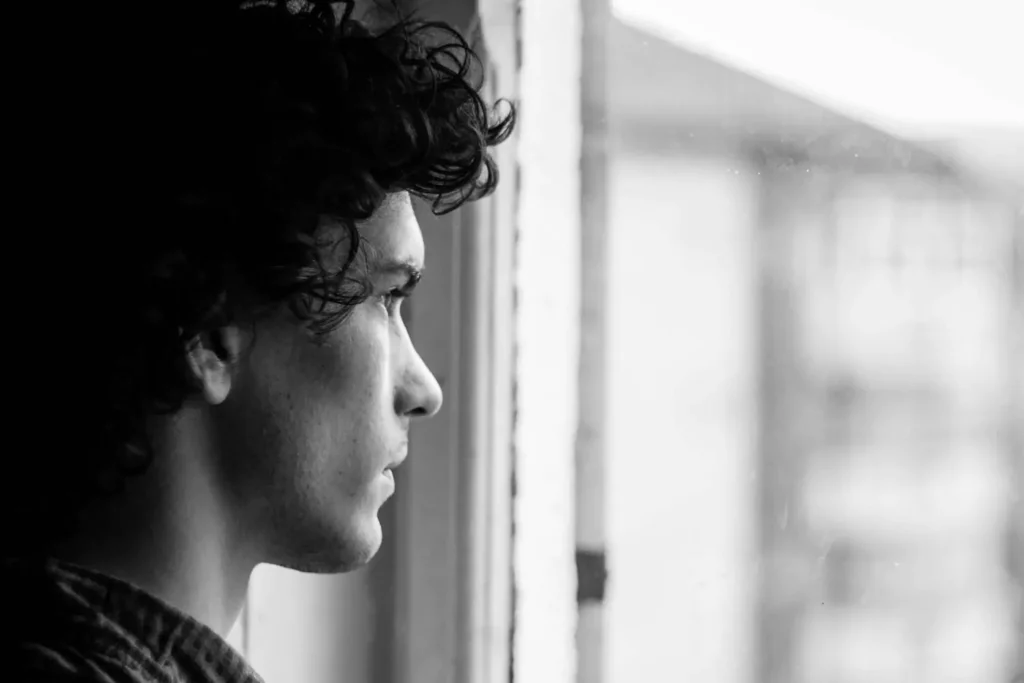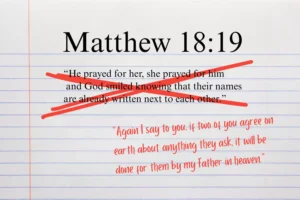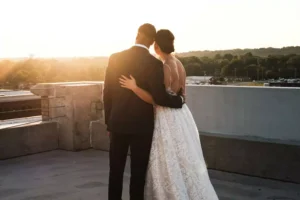Life was just getting back to normal.
After moving across town in Jerusalem and hosting three friends for three weeks during a heatwave, I had weathered a dust storm — five stifling days of what looked like brownish fog. Now I could finally open my windows, breathe clean air, and even see the pine-clad Judean hills around my home.
Then the phone rang. In the States, 6,500 miles away, my little sister had been rushed to the hospital. Trying to remain optimistic, I baked bread while I waited and prayed. That night as I sat at the computer, my siblings kept me updated in real-time. Suddenly, the sister I’d rocked to sleep when I was nine was barely hanging on to life.
“She coded twice,” my brother typed.
“It happened again.”
Her heart stopped and she was resuscitated. Again. And again. And again.
Panic started to set in. “Abba, please,” I gasped, unable to find the words, hoping God would understand my tears as a prayer. As I paced back and forth in my room, my eyes fell on the olive-wood plaque where I’d written Jesus’ words:
“Did I not tell you that if you believed, you would see the glory of God?” (John 11:40)
Glory?! On the most terrifying night of my life, that word sounded simply bizarre.
I later learned that my sister had coded eight times that night. When the doctor could do no more, family and friends held hands in the waiting room and prayed.
Miraculously, she survived. But she lay in a coma for a week while we wondered if her brain had been damaged.
I kept thinking, I don’t know how to do this! What I meant was: How, in the face of this crisis, do I stay full of faith?
She did wake, and three days later, I stood where I longed to be: at my sister’s bedside. Two weeks after that, she was released to outpatient care, and this girl who had been on life support walked into my aunt’s home and joined us for dinner. My heart exploded with wonder and joy.
With my sister on her way to a full recovery, I returned to Israel, where over the next five months, my precious Jerusalem continued to be God’s boot camp of faith for me. After years there, it was the first time I really felt in danger on the familiar streets, the train, and the bus. Meanwhile, one new friend betrayed my trust; another launched a devastating verbal attack against me.
Finally, my visa expired, prompting a move back to the States. Though I’d experienced blessings and miracles alongside the heartache, my feelings-meter was maxed out by the sorrow and glory alike. I was burnt out and bewilderingly numb. “How are you?” seemed like the hardest question in the world to answer.
While I had unpacked my actual bags, I still dragged the internal baggage around. Until I knew how to sort it, and where it all belonged, I couldn’t put it down. Wasn’t there one wise person at whose feet I could dump the whole mess?
My counselor said that everyone has a bucket of pain: we all simply release a little dribble here, and a few drops there. So I began accepting small chances to unload — some straight at Jesus’ feet, and some to brave friends with listening ears. Quietly, incrementally, when I wasn’t looking — God himself relieved my heart.
Hidden Glory
Nineteen months after I received the phone call about my sister, I was visiting Jerusalem again. That’s when my aunt called. Just 18 when I was born, she has become my dear friend. Few understand me the way she does. She stood with us at my sister’s bedside, and in the three months that followed, her husband lost his job and she was diagnosed with cancer.
Since then she has endured her own near-death experience, plus radical surgery and unmanaged pain. I had just been with her for a second surgery, three unexpectedly grace-filled weeks in her hospital room that felt, incongruously, like a sleepover.
Now she told us that doctors could do no more. Against the odds for this “curable” cancer, she’s not expected to survive.
Death hasn’t always seemed so bitter. When I was a teenager, I lost a dear uncle. In the week before he died, we gathered at his home. The place was filled with love, singing, and a deeply-felt assurance of things unseen. It was (dare I say it?) glorious. He was ready to leave earth and see his Savior. Heaven hung like a low-lying fogbank for days: so close, I could almost reach up and touch it. That glory marked me for life.
But I felt no glory here.
All I could see was the fact that my aunt had lost her own mother to cancer and was desperate to spare her sons the same pain. The fact that for months of grueling cancer treatments, her husband had quietly and gladly served her, devastated that he could not relieve her distress. They had feared and suffered and grieved already. Now this?
Why aren’t you helping them, God? I cried.
I was ashamed. Whenever I mentioned my aunt’s diagnosis to others, I would blurt out the same complaint. But that’s not right, I thought. God deserves my praise.
I was bewildered. At church, when we prayed for another friend to be healed from cancer, tears ran down my face. God, why must we accept that my aunt won’t be healed? What is prayer for, if we can’t expect results?
I was indignant. I’m not a baby believer; I know we’re supposed to experience suffering, and I’ve accepted that it’s good for us. But this is ludicrous. It’s out of proportion. God, if You’re writing this story, You’re adding too much conflict and suspense.
Surviving a Tsunami
When I read fiction, the familiar story arc keeps me oriented on the journey to resolution, and makes all the conflict feel purposeful, even satisfying.
But this piled-on suffering felt like there was no story at all, like I was being jerked and spun around in an out-of-nowhere tsunami. There’s no meaning to the world, just salt water in my eyes, ears, nose and mouth.
But slowly, in drips and trickles and ripples, insight has come. Here’s what I’ve been learning about surviving a crisis of faith:
Lament.
When the importance of my response to suffering shrank to its proper size, I experienced enormous relief. God can get glory in my poise, and (often more so) in my weakness. He is not flustered if my words and thoughts are a mess. To paraphrase Job’s complaint to his friends: “Why are you taking me at face value? It’s the grief talking!” God knows when words are part of the process, not a conclusion about who He is.[note]Dan Allender outlines the difference between grumbling (a conclusion that God won’t help) and lament (an honest search to understand Him because we trust in Him). “The Hidden Hope in Lament,” Mars Hill Review, Premier Issue, 1994, 25-38.[/note] Lament means I’m safe enough with Him to groan and cry, to question and wrestle through.
Ask.
When I wailed, “Why aren’t you helping?” God gently replied, “You could ask.”
How often I wish, complain, endure, live in denial, or do anything but pray! Prayer changes things. It is a conversation in which God gives me real influence on events — and I give Him real influence in my heart. I don’t know how it all works, but I do know that I shouldn’t hope in an outcome, but in a Person who is delighted when I choose to hope in Him.
Keep listening.
When God is silent, there’s so much I fear. Does He love me? Does He care? As I wait, I remember Jesus’ words: “I still have many things to say to you, but you cannot bear them now.” (John 16:12) When the time is right, He will speak and comfort and teach. Meanwhile, I know what to do: Crowd in closer to Him. Circle back to His character, every time.
Keep feeling.
If my emotions are safely numb, something as simple as stepping outdoors, snapping a photo, or voicing one thankful thought seems risky. Who wants to brave the pins and needles of returning life? I think my avoidance behaviors stem from fear that if I engage with my grief, it will go on forever. But I know that’s a lie. Like labor pains, the task of grief will someday come to a joyful end.[note]It wasn’t until I read books by others who have suffered that I was able to articulate my struggle – and see beyond it to a time when that burden could be light. See especially Sara Hagarty’s Every Bitter Thing is Sweet: Tasting the Goodness of God in All Things (Zondervan: Grand Rapids, 2014) and Katherine and Jay Wolf’s Hope Heals: A True Story of Overwhelming Loss and an Overcoming Love (Zondervan: Grand Rapids, 2016).[/note]
Keep plowing.
My heart looks a lot like Israel sometimes. After a six-month summer, the autumn rain will run off the sun-baked fields, unless they are first plowed. I am convicted that to break up my fallow ground is to wield the plow of gratefulness. No easy task, yet I truly believe it is the way to resurrect my joy.[note]For this thought I am partially indebted to Ron Block’s “Artists of a Large and Wholesome Vitality.” See especially his last two paragraphs.[/note]
Turn the Page
As a writer, editor and reader, I believe that at its core, reading is an issue of trust. My favorite authors won’t drag me through senseless conflict or write a dead-end plot; each page will build to a conclusion I welcome with all my heart.
If I can trust human writers, why shouldn’t I trust the Author of history and my future?
God may assign me (and my loved ones) more than one major trial, and the one great lesson of our lives, to trust God, will continue to reappear in ways we won’t foresee, or even recognize at first.
But God will never leave me to suffer alone. In the midst of my deepest confusion, I kept remembering the psalmist’s words: “The Lord is near to the brokenhearted.” Now I know that all suffering is part of the story — but it’s not the end of the tale.
Haven’t reached the glory yet? Don’t close the book. Read on.
Copyright 2017 Elisabeth Adams. All rights reserved.











